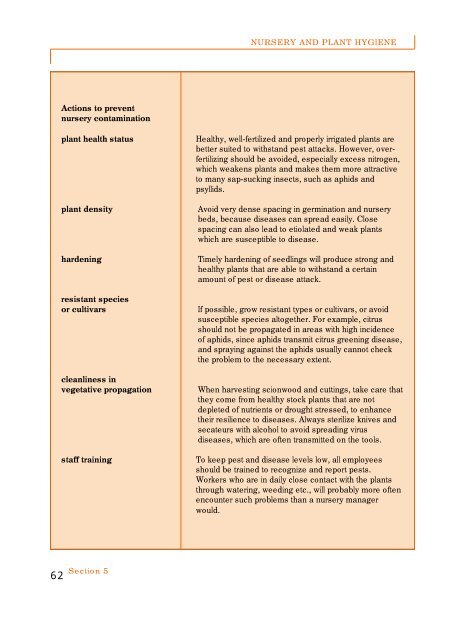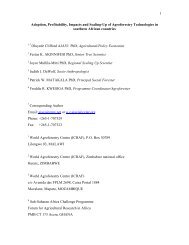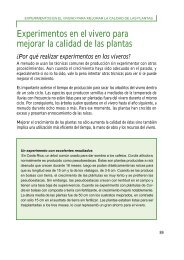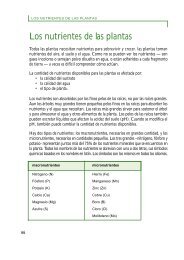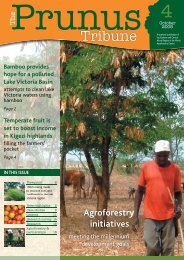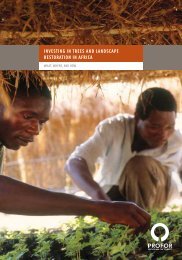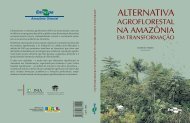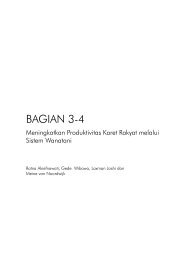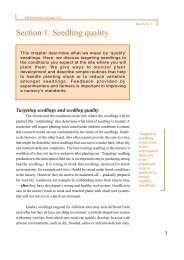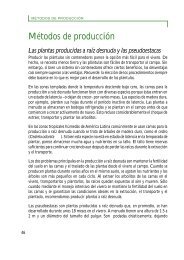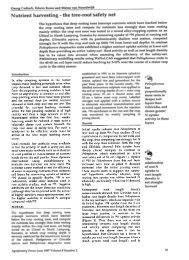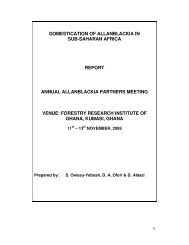Section 5: Nursery and plant hygiene - World Agroforestry Centre
Section 5: Nursery and plant hygiene - World Agroforestry Centre
Section 5: Nursery and plant hygiene - World Agroforestry Centre
You also want an ePaper? Increase the reach of your titles
YUMPU automatically turns print PDFs into web optimized ePapers that Google loves.
NURSERY AND PLANT HYGIENEActions to preventnursery contamination<strong>plant</strong> health status<strong>plant</strong> densityhardeningresistant speciesor cultivarscleanliness invegetative propagationstaff trainingHealthy, well-fertilized <strong>and</strong> properly irrigated <strong>plant</strong>s arebetter suited to withst<strong>and</strong> pest attacks. However, overfertilizingshould be avoided, especially excess nitrogen,which weakens <strong>plant</strong>s <strong>and</strong> makes them more attractiveto many sap-sucking insects, such as aphids <strong>and</strong>psyllids.Avoid very dense spacing in germination <strong>and</strong> nurserybeds, because diseases can spread easily. Closespacing can also lead to etiolated <strong>and</strong> weak <strong>plant</strong>swhich are susceptible to disease.Timely hardening of seedlings will produce strong <strong>and</strong>healthy <strong>plant</strong>s that are able to withst<strong>and</strong> a certainamount of pest or disease attack.If possible, grow resistant types or cultivars, or avoidsusceptible species altogether. For example, citrusshould not be propagated in areas with high incidenceof aphids, since aphids transmit citrus greening disease,<strong>and</strong> spraying against the aphids usually cannot checkthe problem to the necessary extent.When harvesting scionwood <strong>and</strong> cuttings, take care thatthey come from healthy stock <strong>plant</strong>s that are notdepleted of nutrients or drought stressed, to enhancetheir resilience to diseases. Always sterilize knives <strong>and</strong>secateurs with alcohol to avoid spreading virusdiseases, which are often transmitted on the tools.To keep pest <strong>and</strong> disease levels low, all employeesshould be trained to recognize <strong>and</strong> report pests.Workers who are in daily close contact with the <strong>plant</strong>sthrough watering, weeding etc., will probably more oftenencounter such problems than a nursery managerwould.62<strong>Section</strong> 5


